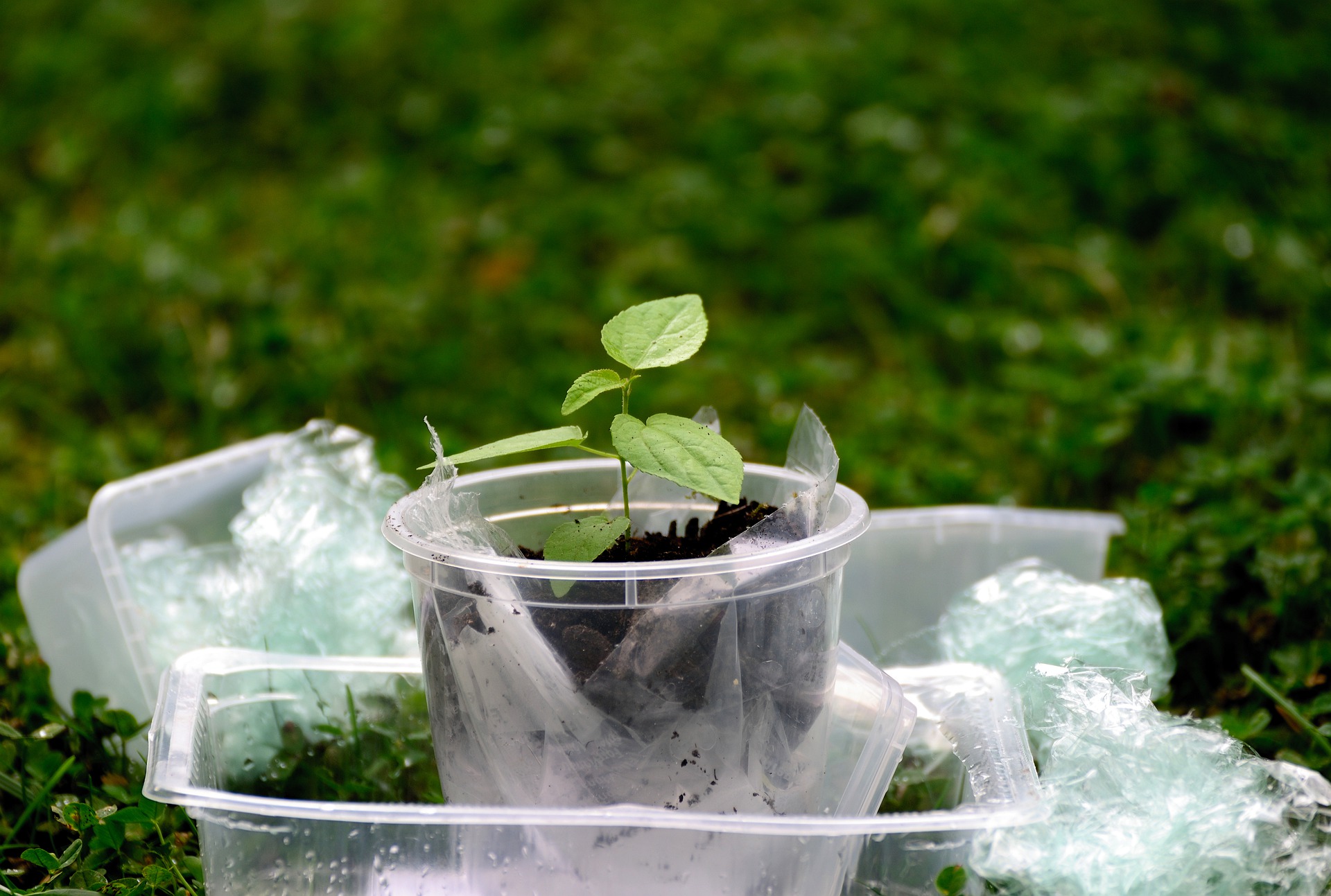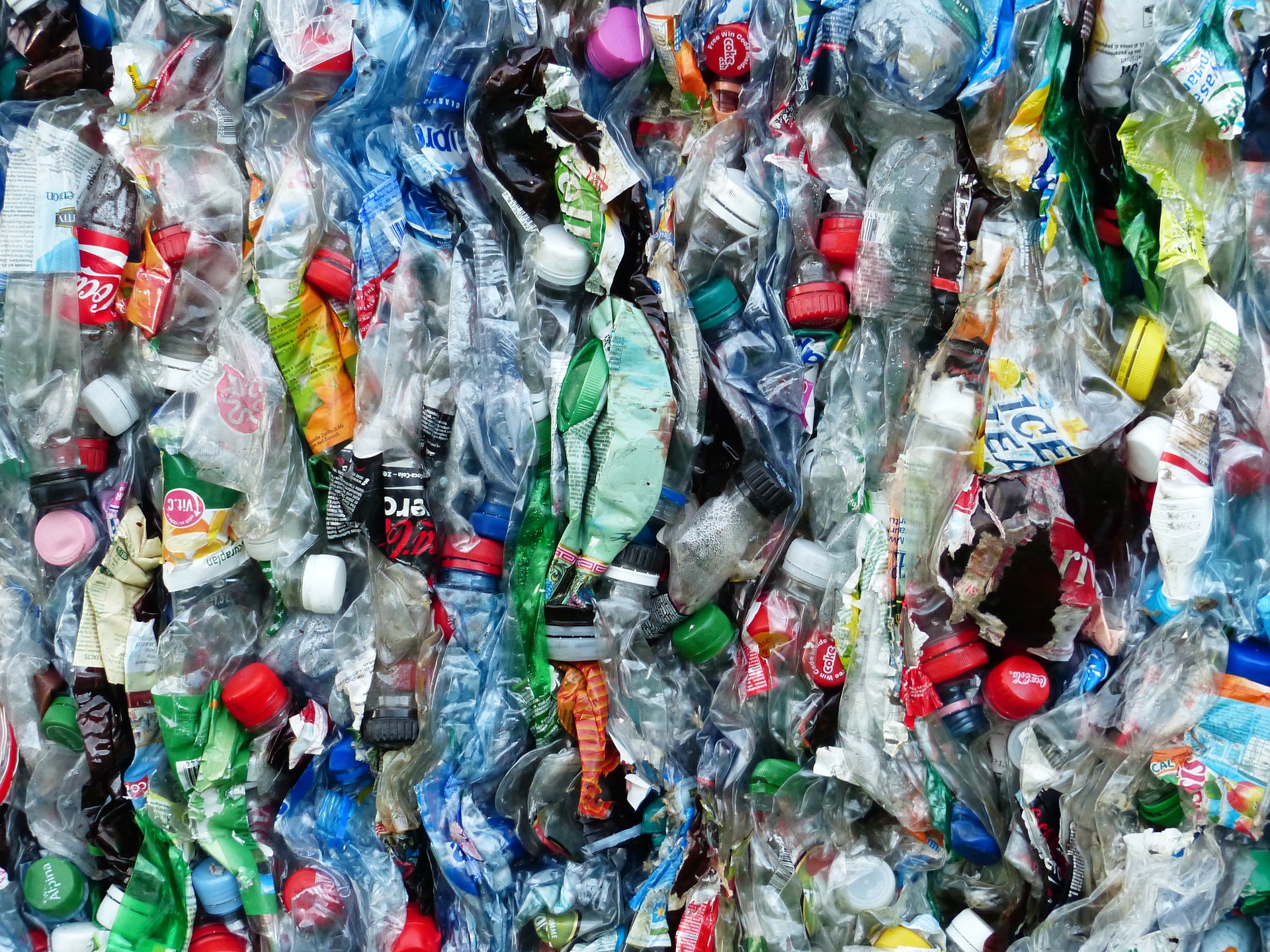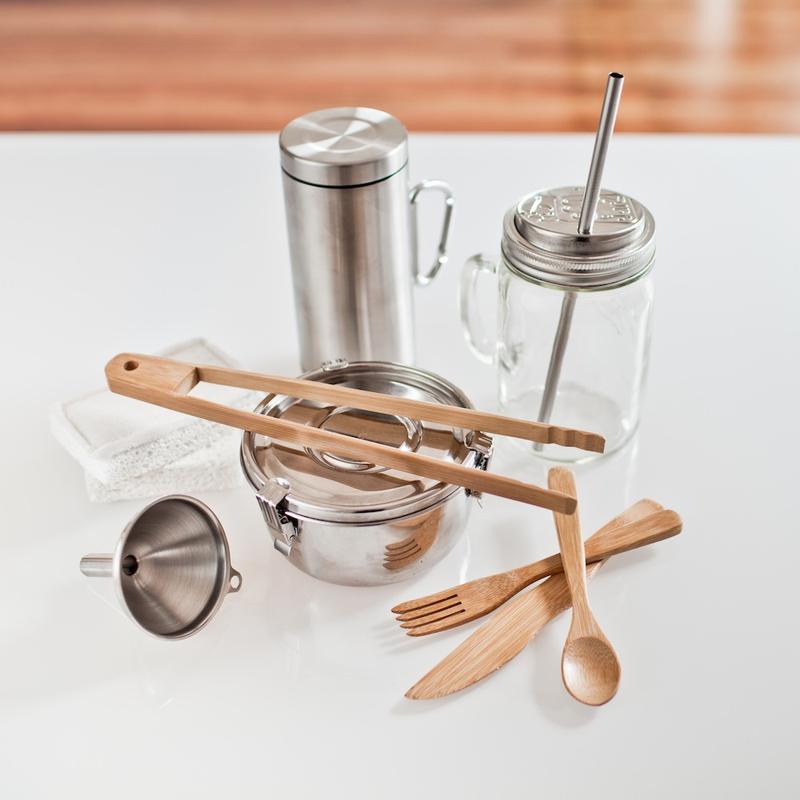
Dear Eartha, this new year, I would like my family to cut back on the amount of plastic we use. How can we reduce our plastic footprint?
With the New Year just beginning, it is the perfect time to start thinking about how much plastic ends up in our landfills and waterways, and what more can be done to reduce the amount of plastic we consume. Single use plastics are a huge, growing problem. We may only use a plastic product for a moment, but its impact on the planet lasts for thousands of years.
What’s the Problem with Plastic?
Today, we produce far more plastic waste than can be recovered or recycled. According to the United Nations, each year we produce 400 million tons of plastic refuse worldwide, from which only 9 percent is recycled. The other 91 percent is either trashed, burned, or dispersed throughout the natural environment.
In response, we have repeatedly turned to recycling to help alleviate these problems. Although recycling is substantial in diverting waste from the landfill, it does not significantly reduce plastic waste at the source. Reducing and refusing plastics are more powerful solutions that can help put a dent in our plastic waste problem.

Becoming Part of the Solution
The most effective step to confronting plastic waste is to not create plastics in the first place. It is great to recycle a plastic bottle after you are done with it, but it is even better to not use that bottle in the first place! Simply decrease the amount of plastic you use by being mindful of the things you purchase – you might be surprised how little thought you have given to your plastic use.
A great way to become mindful of how much plastic you consume is to take inventory of your home and kitchen products to see how many are made of plastic. From there, you can ask yourself, “Do I really need these items, or can I replace them with more eco-friendly alternatives”? Unlike plastic, glass and metal can be recycled an unlimited amount of times without losing quality. When you’re stocking up at the grocery store, look for ketchup, peanut butter, and salad dressings in a glass bottle. If there are no alternatives, make sure to purchase plastic items that can be recycled locally. Number 1 and 2 plastic bottles are the best options.

Once you have taken the time to think about some of the plastic waste you generate, you can start refusing those certain products. Do you really need that set of throw-away plastic silverware with your takeout dinner, or that plastic shopping bag for two items at the grocery store? The next time you are offered a plastic straw, plastic bag, or plastic water bottle, it’s okay to politely refuse it. These things might seem small, but they add up over time, especially if everyone does their share to refuse unnecessary plastic. By refusing plastic products, you can use your voice as a consumer to promote change.
If you are unable to reduce or refuse plastic products, be sure to recycle the plastic rather than throwing it in the trash. The local drop-off recycling centers in Frisco and Breckenridge, accept plastic bottles with the recycling numbers 1 and 2. Single stream recycling, a paid service through your work or home, accepts plastic bottles and tubs numbers 1-7. Additionally, clean plastic bags and plastic wrap can all be recycled at local grocery stores such as City Market or Safeway.
Remember, not all plastics are created equal, and some are not recyclable. One of the most harmful things you can do is to wishcycle, optimistically putting nonrecyclable items in recycling bins. Make sure to check your local recycling program, and only recycle what is accepted to reduce contamination.
If you need more details or want a refresher on what’s acceptable in Summit, visit HC3’s local recycling page. The High Country Conservation Center offers local recycling guidelines, videos, a map of drop-off locations, and a search tool to help you understand how to recycle the right way.
In the new year, we can all create a plastic-free world we all want to live in by reducing and refusing single-use plastic. Small, everyday actions do make a huge difference!
